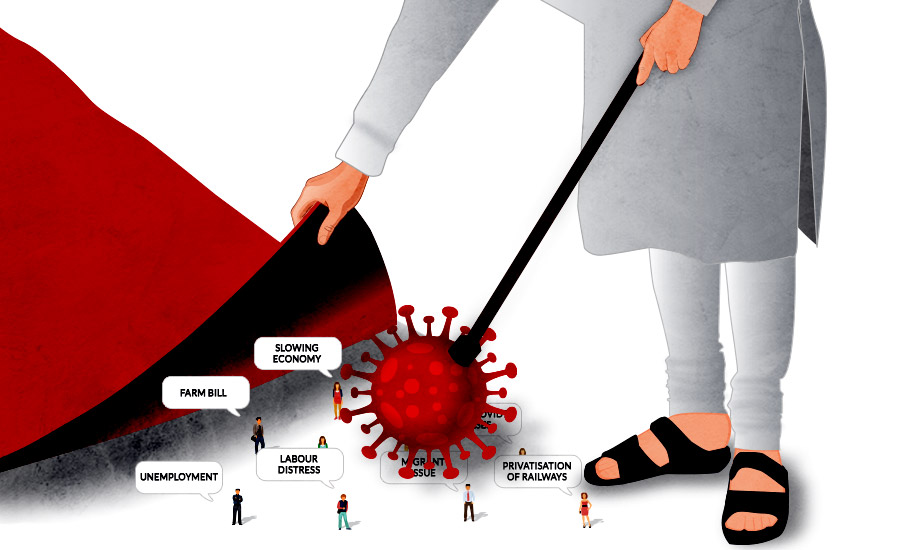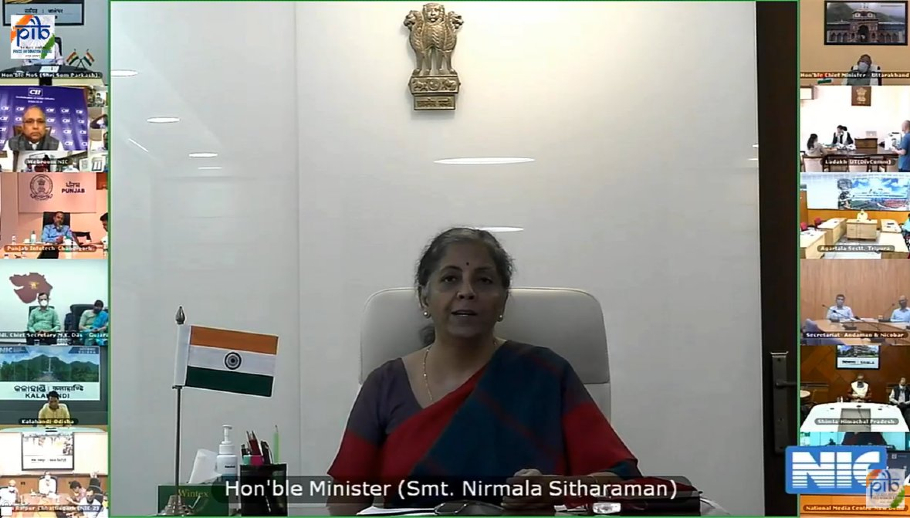
- Home
- India
- World
- Premium
- THE FEDERAL SPECIAL
- Analysis
- States
- Perspective
- Videos
- Sports
- Education
- Entertainment
- Elections
- Features
- Health
- Business
- Series
- In memoriam: Sheikh Mujibur Rahman
- Bishnoi's Men
- NEET TANGLE
- Economy Series
- Earth Day
- Kashmir’s Frozen Turbulence
- India@75
- The legend of Ramjanmabhoomi
- Liberalisation@30
- How to tame a dragon
- Celebrating biodiversity
- Farm Matters
- 50 days of solitude
- Bringing Migrants Home
- Budget 2020
- Jharkhand Votes
- The Federal Investigates
- The Federal Impact
- Vanishing Sand
- Gandhi @ 150
- Andhra Today
- Field report
- Operation Gulmarg
- Pandemic @1 Mn in India
- The Federal Year-End
- The Zero Year
- Science
- Brand studio
- Newsletter
- Elections 2024
- Events
- Home
- IndiaIndia
- World
- Analysis
- StatesStates
- PerspectivePerspective
- VideosVideos
- Sports
- Education
- Entertainment
- ElectionsElections
- Features
- Health
- BusinessBusiness
- Premium
- Loading...
Premium - Events

The pandemic of suppression is peaking and how
Apart from suppressing facts, the Centre is also being accused of rushing through its contentious policies at a time when the scope of protests and stakeholders interventions has been severely constrained by the pandemic.

The absurdity of the term “act of God” was humorously depicted in the 2001 Australian comedy The Man Who Sued God by Mark Joffe and its 2012 Hindi adaptation OMG – Oh My God! starring Akshay Kumar and actor-turned-politician Paresh Rawal. Both the movies hilariously delved into how the legal provision of the force majeure or “act of God” is often misleadingly invoked by...
The absurdity of the term “act of God” was humorously depicted in the 2001 Australian comedy The Man Who Sued God by Mark Joffe and its 2012 Hindi adaptation OMG – Oh My God! starring Akshay Kumar and actor-turned-politician Paresh Rawal.
Both the movies hilariously delved into how the legal provision of the force majeure or “act of God” is often misleadingly invoked by insurance companies to bypass obligation of payment, giving the audience a lot of food for thought and scope for a few laughs as well.
But hardly anyone was amused when Union Finance Minister Nirmala Sitharaman termed the ongoing pandemic as an “act of God” to hide behind the absurdity to deny the states their legitimate goods and services tax (GST) dues.
When the joke gets real
The 41st meeting of the GST Council estimated the shortfall in compensation cess for this year at nearly Rs 2.35 lakh crore. The Centre, behaving almost like the insurance companies in the above-mentioned movies, told the states that it had no obligation to compensate the states for the shortfall as was promised due to the extraordinary circumstances.
“There is no denying that the pandemic has severely stressed the economy. But it is equally true that the economy was already in the sickbed even before the first Covid-19 case was detected in the country in January this year,” says Zia Nafis, joint secretary of the Calcutta Leather Complex (CLC) Tanners’ Association.
India’s GDP growth has been on a slide since the last eight quarters. So, the present economic crisis is not entirely the doings of “God” as Sitharaman would want people to believe. Of course, Covid-19 has only accentuated the crisis.

This unprecedented crisis calls for states and Centre—termed Team India by Prime Minister Narendra Modi in his inimitable style—to come together. But instead of helping the states, the Centre which is deemed to be a team leader going by Modi’s allusion, is putting the entire burden on them to deal with the biggest crisis mankind has to ever face in this century.
By doing so, Congress MP from Assam Abdul Khalique says, the Union government is jeopardising the conventional values upon which the Centre-state relations or for that matter our entire federal democratic structure is built on.
What is more worrying is that it was neither the first time nor the last when the Centre is accused of using the pandemic to bypass convention, the latest being the suspension of Question Hour in Parliament citing the pandemic.
“We get a chance to raise the issues of the common man. Question Hour is simply a golden hour of the House,” leader of the Congress in Lok Sabha Adhir Ranjan Chowdhury said, accusing the government of trying to suppress this democratic practice which has been followed since Independence.
True, many state governments, including the one in West Bengal too curtailed the Assembly proceedings using the pandemic as a pretext, evoking sharp reactions.
“Height of doublespeak! You don’t allow #QuestionHour where ministers have to stand up and answer Qs from MLAs and be held accountable. Stop throwing crumbs. This is the West Bengal legislative Assembly, not your Nabanna!” tweeted CPI (M) leader Mohammed Salim reacting to the state government’s decision to curtail the Question Hour in the West Bengal Assembly. (Nabanna that Salim referred to is the state secretariat).
However, what makes the Centre stand out from the state governments is the way it’s trying to suppress facts from day one, says Suhas Chakma, director of the Delhi-based Rights and Risks Analysis Group.
“The first attempt was the affidavit the government filed in the Supreme Court seeking a directive to news outlets to refrain from publishing any COVID-19-related news without clearance from the government,” Chakma tells The Federal.
Fortunately, the Supreme Court, he adds, turned down the request. But the government got its way by reducing the flow of official information to a trickle.
The Centre recently told Parliament that it did not have any data of migrant workers who lost their jobs and lives during the COVID-19 lockdown.
No data, no accountability
In another attempt to block information, the Prime Minister’s Office (PMO) refused to give information related to the PM CARES Fund to a Right to Information activist.
The PMO stated that the fund set up after the outbreak of Covid-19 is not a public authority and therefore it won’t be able to divulge information pertaining to it.
Incidentally, the PM Cares – an acronym for Prime Minister’s Citizen Assistance and Relief in Emergency Situations—allegedly received massive donations from Chinese companies such as Xiaomi, TikTok, Huawei etc.
I wish to ask the naked emperor- WHERE ARE YOUR CLOTHES?https://t.co/YvgnAUCElh via @YouTube
— Mahua Moitra (@MahuaMoitra) September 19, 2020
Many viewed the fund as another anti-state agenda of the Centre. Trinamool Congress MP Mahua Moitra pointed out that the current Union government is even treating unequally the state and central relief funds.
“The government issued a circular on March 28, 2020 notifying that all contributions to the PM CARES Fund qualified as eligible CSR expenditure under Item No. (viii) of Schedule VII of the Companies Act, 2013. But it disqualified contributions made to the ‘state relief funds’ from being treated as valid CSR activities, despite the same being expressly permissible under Schedule VII of the Act of 2013,” Moitra told the Lok Sabha recently.
This disparity is apparently discouraging corporate houses to make major contributions to the CM’s relief funds.
Moreover, as Moitra pointed out, the very intent behind creating the CSR was to encourage companies to commit contributions for public welfare activities locally in the states where they operate.
“The PM CARES diverts those funds away from local communities into a dark hole where not even a speck of light can enter,” the TMC MP alleged.
Riding roughshod
Apart from suppressing facts, the Centre is also being accused of rushing through its contentious policies at a time when the scope of protests and stakeholders interventions has been severely constrained by the pandemic.
The passage of farm bills in Parliament, the proposed amendment to labour laws, disinvestment of PSUs, the publication of the draft Environment Impact Assessment (EIA) Notification 2020, the draft National Fisheries Policy and the nod given for the construction of a new Parliament building by the government-appointed Central Vista committee are some of the policy agenda pushed amidst the pandemic have raised serious concerns among activists and trade unions.
“The anti-farmer, anti-people move of the government aimed at completely restructuring the management of the agricultural economy including farm trade in total favour of the big-landlord corporate nexus and multinational trading cliques on agricultural produce,” 10 Central Trade Unions said in a joint statement.
General secretary of the All India Trade Union Congress, Amarjeet Kaur, and president of the BSNL Casual and Contract Workers’ Federation, VAN Namboodiri, say the government chose the pandemic to push its contentious agenda thinking there would be no large-scale protests.
They claim despite restrictions their respective organisations would continue to fight to protect the interest of the common people, farmers and workers by following the social- distancing norms.
But according to Chakma, more than the fear of protests, the government was in a hurry to “hand over everything to corporate houses” so that it could raise some funds to replenish its depleting exchequer.
“This government does not care much about protests and dissents. They have been successfully silencing the voice of dissents in recent years.”
There is more to this rush than what meets the eyes, Chakma adds.
The only solution to this continuous slide, many still hope, is sustained pressure from within and outside.
“The people, opposition political parties, particularly the parliamentarians, and international bodies must put pressure on the government,” says Kirity Roy, the secretary of Banglar. Manabadhikar Suraksha Mancha (MASUM), a non-governmental human rights organisation.
Otherwise the democratic values, Roy adds, will continue to be trampled and voices of dissent muzzled.
